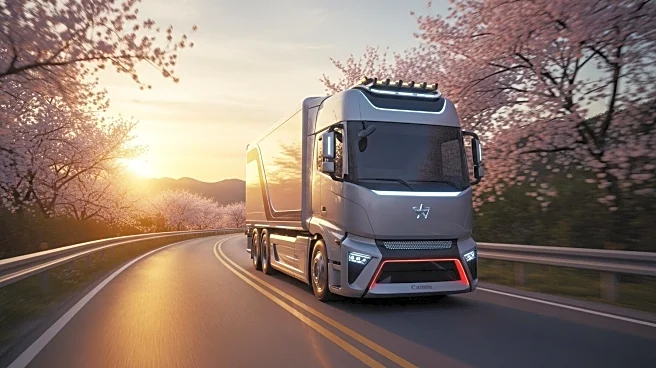What's Happening?
Toray Industries, in collaboration with Tokyo-based T2, is launching a trial for autonomous trucks on a major expressway in Japan. This initiative aims to address the country's driver shortage by testing the feasibility of using T2's autonomous trucks for long-haul transport of Toray's products. The trial will cover a 440-kilometer route from Kanagawa Prefecture to Osaka, with four scheduled runs between September 2025 and April 2026. T2 plans to introduce Level 4 autonomous trucks for long-haul services by 2027, having already commenced operations with Level 2 models earlier in 2025. The trial will also explore the use of carbon-neutral fuels, with support from the Tokyo Metropolitan Government, to promote green industry growth.
Why It's Important?
This trial represents a significant step towards addressing the labor shortage in Japan's logistics sector, which is crucial for maintaining supply chain efficiency. By potentially reducing reliance on human drivers, the initiative could lead to cost savings and increased operational efficiency. Additionally, the use of carbon-neutral fuels aligns with global efforts to reduce carbon emissions, contributing to environmental sustainability. The success of this trial could set a precedent for similar initiatives worldwide, influencing policies and practices in the logistics and transportation industries.
What's Next?
If successful, Toray and T2 may proceed with commercializing long-haul Level 4 autonomous truck transportation. This could involve further collaborations and expansions in the use of advanced fuels, potentially influencing regulatory frameworks and industry standards. Stakeholders, including government bodies and logistics companies, will likely monitor the trial's outcomes to assess its viability and scalability.
Beyond the Headlines
The trial could have broader implications for the adoption of autonomous technology in other sectors, potentially accelerating innovation and investment in automation. It also raises questions about the future of employment in the logistics industry, as increased automation may lead to shifts in workforce dynamics.









